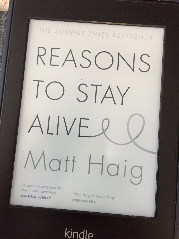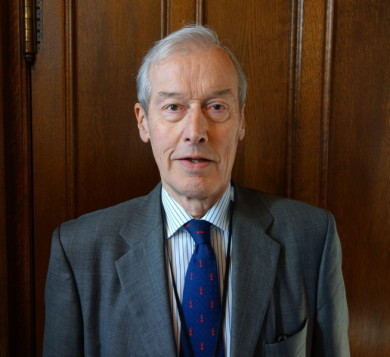Alan Haselhurst interview
22 Oct 2013
Alan Haselhurst is my father-in-law. That means I get to chat with him about his writing without negotiating with an agent or publisher or bouncer. It also means you’re liable not to believe anything I say about him. I choose to focus on the positive, and see the negative as more your problem than mine.
Disclaimer (can you call that a disclaimer? More of an overly defensive pop really... ) out of the way, to our chat.
Two things amaze me about any writer. One, that they find the time in the first place. And two, that they have the confidence (especially at the beginning) to spend so much of the time they’ve found hammering away at something they have no idea if people will like or throw pies at them for.
Alan Haselhurst scores huge on both counts. Here’s a guy with a job that would consume most of us whole, and enough friends and family to make his Christmas card list look like a novel in its own right. Yet one day in the mid-90s, he decided to pick up a pen and start writing a novel as well. What they hey?
“It was a re-read of the wonderful chapter in the book England, Their England, which is a satire of the English written from the point of view of a young Scotsman. The village cricket match in which he became caught up is, I think, the funniest piece of cricket fiction ever penned. It’s gone into so many anthologies that people forget which book it ever came from. When I re-read it, I started to think whether it was possible to compose, 60 years on, something similar with a feel for the end of the twentieth century. That fired me up.” And how! That spark - that identifiable neat shot of inspiration - has spawned six novels and counting.
It fits though. One of the most common things you'll hear from a writer is that they got an idea in their head and couldn't get rid of it, so had to write it. And Alan's passionate about what he's passionate about. I can see him with an idea in his head, and following it up to the tune of hundreds of thousands of words, scribbled out long-hand in snatched moments during train trips and small-hours spent at his desk.
But of course, that first stint of writing wasn’t hundreds of thousands of words. It was eighteen thousand. An introduction or two later, and the feedback came. “Adrian Stevenson at Queen Anne Press told me ‘you have to realise, it’s neither one thing or the other. It’s not a short story, it’s not a book.’ I expressed some disappointment. I’d read other books that seemed to me of a similar length. When I got home and had a chance to take out the thinnest Peter Tinniswood book I could find and do a rough calculation, it was about twenty-eight thousand.”
Ah. Set-back.
But this is what I’m getting at. This guy, with only snatched moments, put together something he was proud of, and even got in front of a publisher with it, only to be told it was not right.
Hands thrown in the air, right? Screw that, I’ll spend the small-hours asleep instead, right? I’ll spend those train trips having a rare relax, right? Well, you know that’s not what happened. I’ve already told you he’s done six books.
Writers don't give up. Not good ones, anyway.
“I’d really enjoyed doing what I did, so I thought I'd take my Outcasts [the fictional cricket team featured in all of Alan’s writing] to another village in Essex.
"I’d obviously become more verbose by that stage, because that took me to fifty thousand words, which struck me as a half-way house. So I embarked upon giving them a weekend in Yorkshire, based on an experience with some friends in my younger days when we went in search of real ale pubs. In the end, it was about a hundred and twenty-two thousand words.” And that got published. Bang, the Outcasts were in the world and on bookshelves.
Great, he’s had a book published. Ambition achieved. Now, back to the day job and a bit of actual down-time when he can grab it, right? Nope. “Adrian Stevenson very kindly published the first book, and I then thought, well, I could do that again I think.”
Machine.
“You set yourself different challenges. It’s arguable that my books in some respects are formulaic, but at the same time, they’re not completely stereotypical from one to the other. My second book had two stories rather than three. Then the third time out, I decided I could do a complete one story novel.”
I love that, the progression as a writer. From book to book, Alan revelled in new challenges. “I enjoy the different strands of plot. I do try to put people in difficult situations. One of my favourites was in, I think, Accidentally Cricket, in which I had a group of Japanese tourists who I subjected to all sorts of privations, and the people doing the stalls in the same book all suffered to some extent,” said with a wry grin creeping across his face.
Which is important. Alan enjoys this stuff.
But then his publisher retired. Three books in, complete novel structure achieved, and now he was without a publisher. OK, OK, time to hang up the pen and reflect on a job well done. But wait, he had two vowels left. He’d done Occasionally Cricket, Eventually Cricket and Incidentally Cricket. He still had A and U to go.
“Accidentally struck me as a useful adverb; various things could flow from accidental happenings.” And that was enough. He was away again. A bit of gentle encouragement from some well placed friends, a fresh introduction or two, some wonderful work from a certain Anthony Haynes, and book four was a reality.
I’m going to stop the history lesson there. That was, for the most part, me saying in around 800 words what I could have in fifty; the stamina and self-belief and self-discipline needed to write a book, never mind a series of books, is a feat which continues to boggle me.
Ask any writer, and they’ll tell you they do it because they love it; that it’s fun for them. But they’ll also tell you that writing a novel is as much about hard work as it is about playtime. They’ll tell you there are moments, many of them long, in which you wonder why you’re bothering at all.
That Alan did all this amongst one of the more demanding work, family, and social schedules you’re likely to find is a stark example. That he did all this and the books are bloody good too, well that’s showing off.
“I’m busier than I’ve ever been, and I’ve still sailed into the next book with relish. I’m still enjoying it.”
Alan's latest, Fatally Cricket, is out now. Get the GBR take on it here. Or buy it here.




